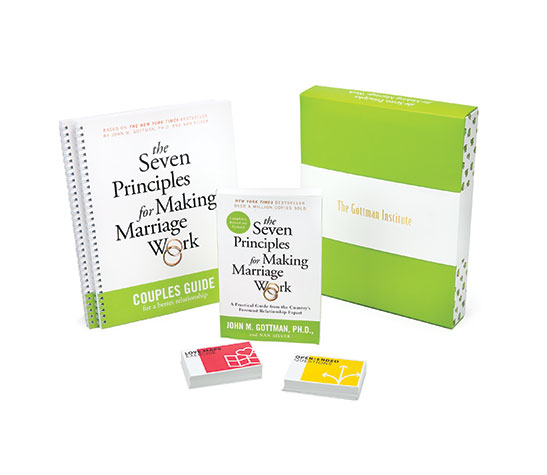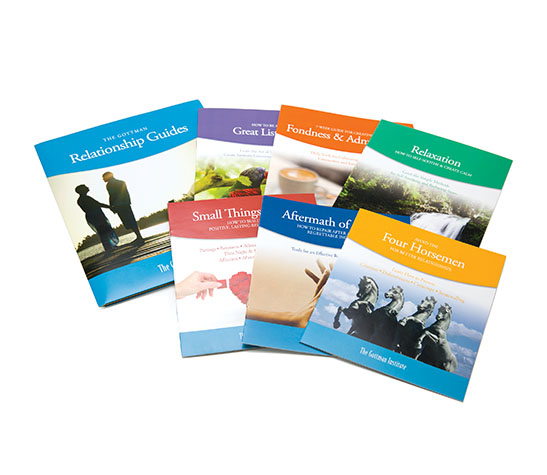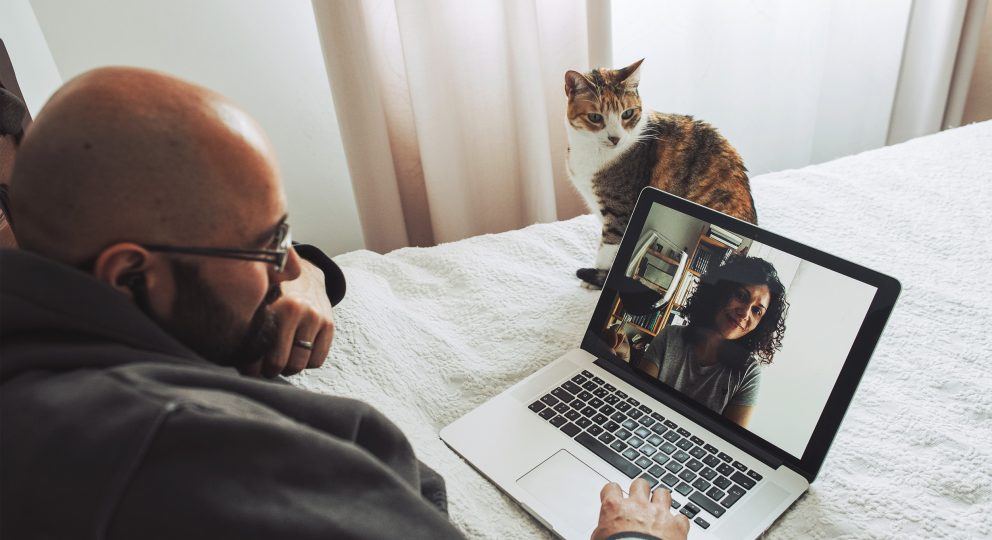By Karen Mathias
Editor’s Note: We’ve been studying relationships for the last four decades, but we still have so much to learn. Through the individual stories and experiences shared in Real Relationships, we aim to paint a more realistic picture of love in the world today. The views, thoughts, and opinions expressed in this article belong solely to the author, and are not necessarily based on research conducted by The Gottman Institute. Submit your Real Relationship story here.
I was 31 years old when I met my husband. Almost a decade later, that seems so young, but in a small midwestern city, it was a bit abnormal to still be single at that age. I had dated several men, a few of them seriously, but I couldn’t find the right fit. With each one, it felt like either I was more interested in him than he was in me or vice versa. It never felt equal. I was looking for equal.
I had always wanted to be a mom and when I turned 30 years old, I started researching my options for having a child on my own. I was financially stable and had a good support system, and each time I did relationship math (meet someone and date him for two years, engaged for one year, married for a couple of years, who knows how long to get pregnant), I was staring down the dreaded “advanced maternal age.”
My plans were put on hold when I met a man at a friend’s party. He was the only person who laughed at a sarcastic comment I made and I got that fluttery feeling you get when someone understands your dry sense of humor. Eight months later, we were ready to move in together. I’d always maintained that I wouldn’t live with someone until we were engaged, but this was a special circumstance: he had a seven-year-old daughter and he wanted to make sure that everything would “work out” when we were under one roof. I knew this was the man I wanted to marry, I’d known that for at least five months at that point (when you’ve met so many of the wrong ones, the right one is easier to see), so I was determined to make this work.
The custody arrangement was structured in a way that we had his daughter every Friday night through Monday morning and I threw myself completely into being the best hopefully-future-stepmom out there. I coached a girls’ hockey team for several years, worked in school-aged childcare in my younger years, and had a master’s degree in counseling—I could do this. I was made for this. Unfortunately, I had no clue what “this” was.
No one in my close circle of family and friends had been part of a stepfamily. I devoured books about being a stepmom, but none of it seemed to apply; we just didn’t have the problems that other people had. We were happy and functioning just like a normal family three days per week. I took over the mom role at our house; I weighed in on nutrition, cleanliness, and chores. I signed her up for swimming lessons, sports camps, and plays. I taught her how to ride a bike and we read books together every night. I had some underlying, nagging concerns, but I kept those mostly to myself. I didn’t want to rock the boat.
Somewhere along the line, I started to feel like I was losing myself. I am a firm believer in counseling, so I started seeing a counselor who had experience working with stepfamilies. She introduced me to Patricia Papernow’s seven stages of stepfamily development and explained that I was probably moving out of the first stage (fantasy) and into the second stage (immersion). I felt pretty confident that we hadn’t spent the first two years of our relationship in the fantasy stage; I’m much too realistic for that. The second stage is characterized by really ugly feelings including jealousy and resentment. At that point, I wasn’t even willing to admit that I felt those things; it seemed so immature to me.
After living together for almost two years, we got married. My stepdaughter was in the wedding and instead of lighting a unity candle, the three of us poured colored sand into a jar to represent our “blended” family. I remember feeling a sense of sadness after our wedding day, but not because the wedding was over—I was hurting because I realized I was no more a part of the family than I was before the wedding. My husband and his daughter had been together for seven years before I came along; there was no way for us to build a base without a child around competing for his attention. It could never be just the two of us for longer than four days at a time. These are things that should have been obvious from the beginning, but love tends to turn a blind eye from time to time.
The following year we sold my house, built our house, and got pregnant. When we found out we were having a girl, I felt immense relief. I already felt like an outsider in our house and was terrified that if we had a boy, he would gravitate towards his dad and I would still be on the outside. We were definitely not in the fantasy stage anymore.
A few months after our daughter was born, the situation at my stepdaughter’s mom’s house began to deteriorate and my husband and I made the decision to pursue an increase in parenting time. After five months of various legal maneuvers and delays, we were granted full parenting time. We were relieved to have her under our roof every night and we were prepared to provide her the stability she needed and deserved; what we weren’t prepared for was her mother deciding to no longer participate in her daughter’s life.
We found ourselves in a storm: suddenly having two kids full-time while dealing with the pain of maternal abandonment and disagreeing on parenting styles. I was raised in a home with structure, responsibilities, and consequences; my husband was not. I was rigid and unyielding in my expectations of my stepdaughter; my husband was worried about losing her as she retreated further into depression. After years of working to establish a strong relationship with my stepdaughter, I could feel her rejecting me. She stopped talking to me, responding to me, looking at me. When I brought concerns about her behavior to my husband, he would tell me he would think about it, but ultimately nothing changed. He was stuck between me and his daughter and it seemed like he was almost paralyzed by the position he was in.
Armed with over a year’s worth of difficulties, I decided to re-read some of the books about stepfamilies that I had purchased when we first moved in together. I wasn’t sure what stage of stepfamily development we were in at that point, but I knew it wasn’t good. I read that roughly two-thirds of second marriages end in divorce, typically because of stepfamily issues. It was during this time that I learned about the process of “disengaging” as a stepmom. Essentially, the stepmom completely steps back and allows the biological parent to do all of the work of parenting. I immediately rejected the idea because it sounded a lot like giving up and I don’t have that in me. I knew something needed to change, though.
I kept going back to the article I found about disengaging, and eventually brought it to my husband. He hated the idea and said he didn’t understand how it would make anything better. To be honest, neither did I. We started seeing a marriage counselor and ten minutes into our first session, the counselor looked at me and said, “oh, you have to disengage.”
The counselor gave me the permission I needed to open myself up to the idea. I had to accept that I was not my stepdaughter’s mother; she already had one of those, despite the fact that she was absent. I needed to understand that I was not responsible for how my stepdaughter turned out and I needed to let go of my expectations of her. Remember that little girl who I taught to ride a bike? I had to let her go. It was significantly more painful than I allowed myself to believe at the time. I felt like I had put so much time and effort into our relationship for the past few years, only to see it just slip away. I went around and around in my brain trying to figure out where I went wrong and, more importantly, how I could fix it, but I kept coming up empty.
Disengaging had a cascading effect in our family. My husband had to take on all of the work with his daughter, while I took on more of the work with our daughter. I stopped doing the behind-the-scenes work for my stepdaughter—making hair appointments, picking up prescriptions, or making sure she had enough personal care items or appropriately sized clothing. I stopped worrying about her nutrition, screen time, or cleanliness. When I could no longer stand the condition of her bedroom, we finished the basement of our house so she could have her own space that I didn’t need to walk past each day. I stopped forcing my husband to choose between his daughter and his wife. I started focusing on my marriage, my daughter, and myself. I was worried that it would feel like my husband and I weren’t on the same team anymore and for a while, it did. As I continued stepping back, though, the weight of our family got lighter. I let go of the resentment and sadness.
One of the hardest things for me to realize was that we are not a normal family. We’re not even a normal stepfamily. All of the constructs I grew up with and believed I would carry on in my own family had to be thrown out the window. As much as I would like one, there is no guide on how to be a stepfamily—we are all too different. There is opportunity in this, though; I have let go of so many expectations of myself and from others. I don’t go to parent-teacher conferences for my stepdaughter anymore, and that’s okay. I only sat through two band concerts in the past four years because it’s not my gig. We don’t have those adorable yearly family photos for our holiday cards; it’s rare that we even have a picture of the four of us in a given year. Our finances are divided into a yours/mine/ours system, which goes against everything I thought was right, but it’s working really well for us. I no longer feel the pressure to love my stepdaughter “like she’s my own,” because she’s not my own. I missed out on bonding with her for the first seven years of her life. What matters most is that my marriage is strong. Everything else will fall into place.
Experts say the average stepfamily takes seven years (seven!) to get through the stages of stepfamily development. Eight years in, I’m happy to say we are probably in the second to last stage (contact). All four of us are developing relationships with each other. When we sit down to dinner each night, we talk about the best part of our day and have actual conversations. My stepdaughter will go to the library or bookstore with me now, which she didn’t do for about three years. We go on vacations together and it doesn’t feel completely fragmented. When I see our two girls running across the yard together, my heart swells. We still have our struggles, but I know we have the tools to get through them.
I don’t need my husband; I never have. I choose him. I choose him every day, over and over again. And he chooses me. We do the work that we need to do to keep loving each other. And there’s nothing more that I could wish for our daughters than for them to someday find a person who they choose to be with, despite the difficulties.
Sign up for the Love Notes Newsletter
Get the latest on relationships, parenting, therapy and more from the experts at The Gottman Institute, plus get a FREE download every month!
.










